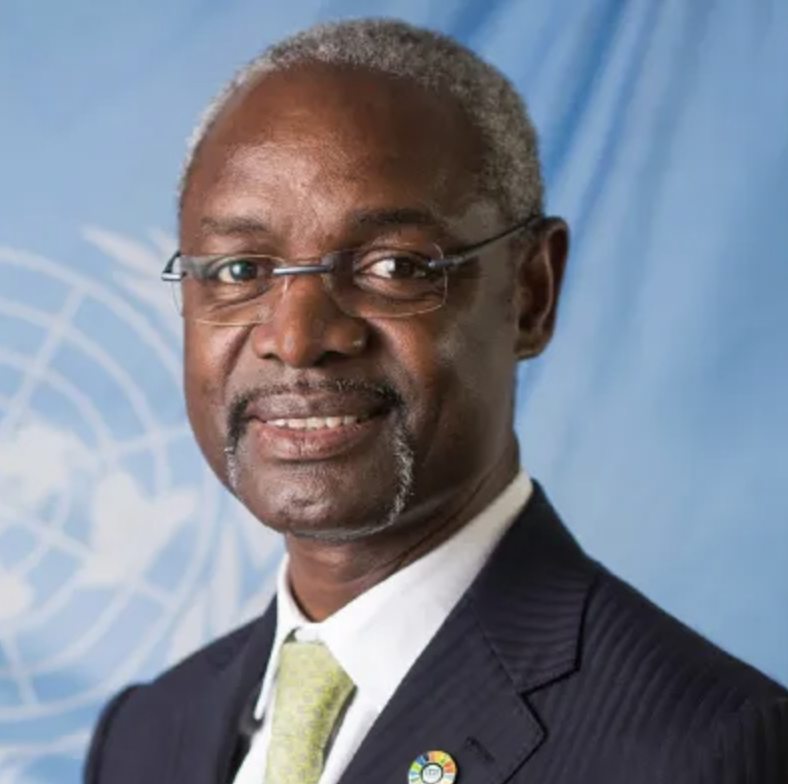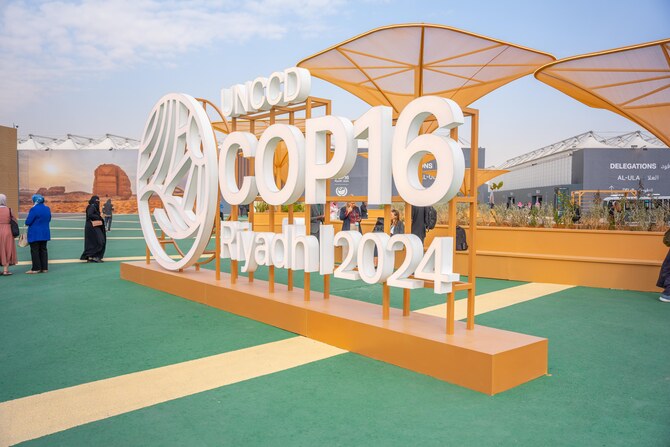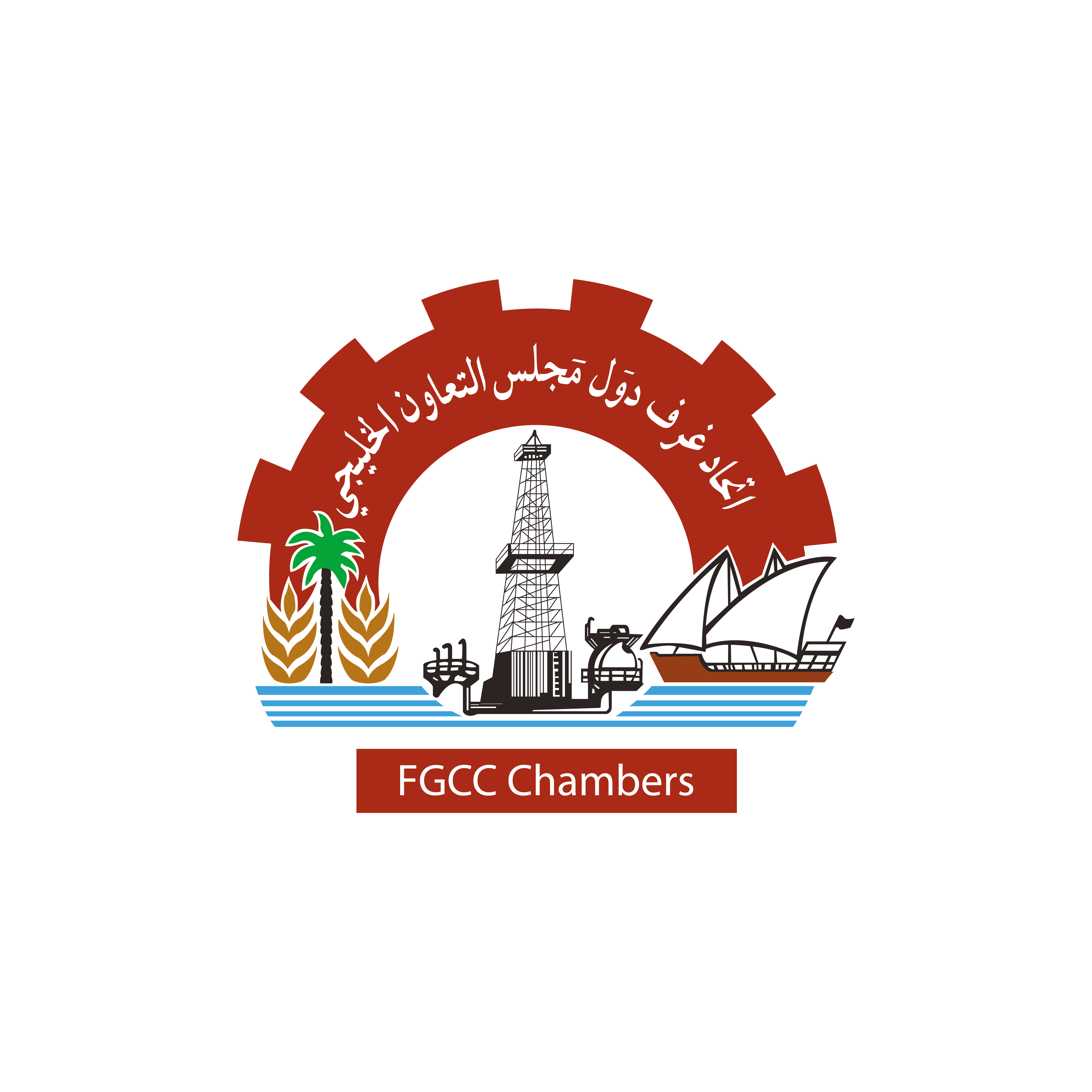The largest-ever meeting of the UN Convention to Combat Desertification has kicked off in Riyadh, with bolstering global drought resilience one of the key goals.
Running from Dec. 2 to 13, the first few days of COP16 are set to see a number of high-profile summits, ministerial dialogues, and announcements to address the pressing challenges associated with land degradation, degradation and drought.
French President Emmanuel Macron is expected to be among the attendees, as is the President of the World Bank Ajay Banga.
The opening day of the event will see Saudi Arabia use its presidency of the event to launch the Riyadh Global Drought Resilience Initiative, in a bid to accelerate international action in this area.
In tandem, the Saudi Green Initiative Forum, running from Dec. 2 to 3, will include hundreds of policymakers, business leaders and subject matter experts from across the world in a dedicated pavilion in the COP16 Green Zone.
The Second International Forum on Greening Technologies is also set to take place in the Green Zone between Dec 6-8, including dozens of tailored sessions to explore solutions, innovations, and lessons learned from global greening projects, alongside showcasing the scientific research associated with restoration projects around the world.
12:52 p.m. – “Action cannot wait”

Amina Mohammed, deputy secretary-general of the UN, called for urgent global action, particularly around strengthening international cooperation on land degradation, ramping up restoration work, and mobilizing finance at scale.
“Land sustains us, and we are destroying it. Action cannot wait,” she said.
11:44 a.m – COP16 President speaks

COP16 President Abdulrahman Al-Fadli, also the Kingdom’s minister of environment, used his speech to emphasized the Kingdom’s commitment to combating desertification, adding: “The Middle East is one of the regions most impacted by land degradation, drought, and desertification. We seek to address environmental challenges in partnership with the international community.”
The environment minister highlighted Vision 2030 as a cornerstone for the Kingdom’s green agenda, saying: “Protecting the environment and natural resources is essential for achieving sustainable development and quality of life.”
10.43 a.m. – Private sector funding crucial to tackling degradation, UN executive says

Restoring the world’s degraded land and holding back its deserts will require at least $2.6 trillion in investment by the end of the decade, the UN executive overseeing global talks on the issue told Reuters, quantifying the cost for the first time.
More frequent and severe droughts as a result of climate change combined with the food needs of a rising population meant societies were at greater risk of upheaval unless action was taken, Ibrahim Thiaw said.
A large chunk of the around $1 billion a day that is required will need to come from the private sector, said Thiaw, who is executive secretary of the UN Convention to Combat Desertification.
“The bulk of the investments on land restoration in the world is coming from public money. And that is not right. Because essentially the main driver of land degradation in the world is food production… which is in the hands of the private sector,” Thiaw said, adding that as of now it provides only 6 percent of the money needed to rehabilitate damaged land.
“How come that one hand is degrading the land and the other hand has the charge of restoring it and repairing it?,” said Thiaw, whilst acknowledging the responsibility of governments to set and enforce good land-use policies and regulations.
With a growing population meaning that the world needs to produce twice as much food on the same amount of land, private sector investment would be critical, he said.
To hit $2.6 trillion — approaching the annual economic output of France — the world needs to close an annual gap of $278 billion, after just $66 billion was invested in 2022, the UN said.
10:36 a.m. – Abdulrahman Abdulmohsen Al-Fadley elected as COP16 president
❝We look forward to intensifying action under this convention and promoting integration between international environmental organizations… to limit land degradation and reduce #drought❞ – His Excellency Eng. Abdulrahman Abdulmohsen AlFadley #UNCCDCOP16 President @MEWA_KSA
— UN Land and Drought (@UNCCD) December 2, 2024


